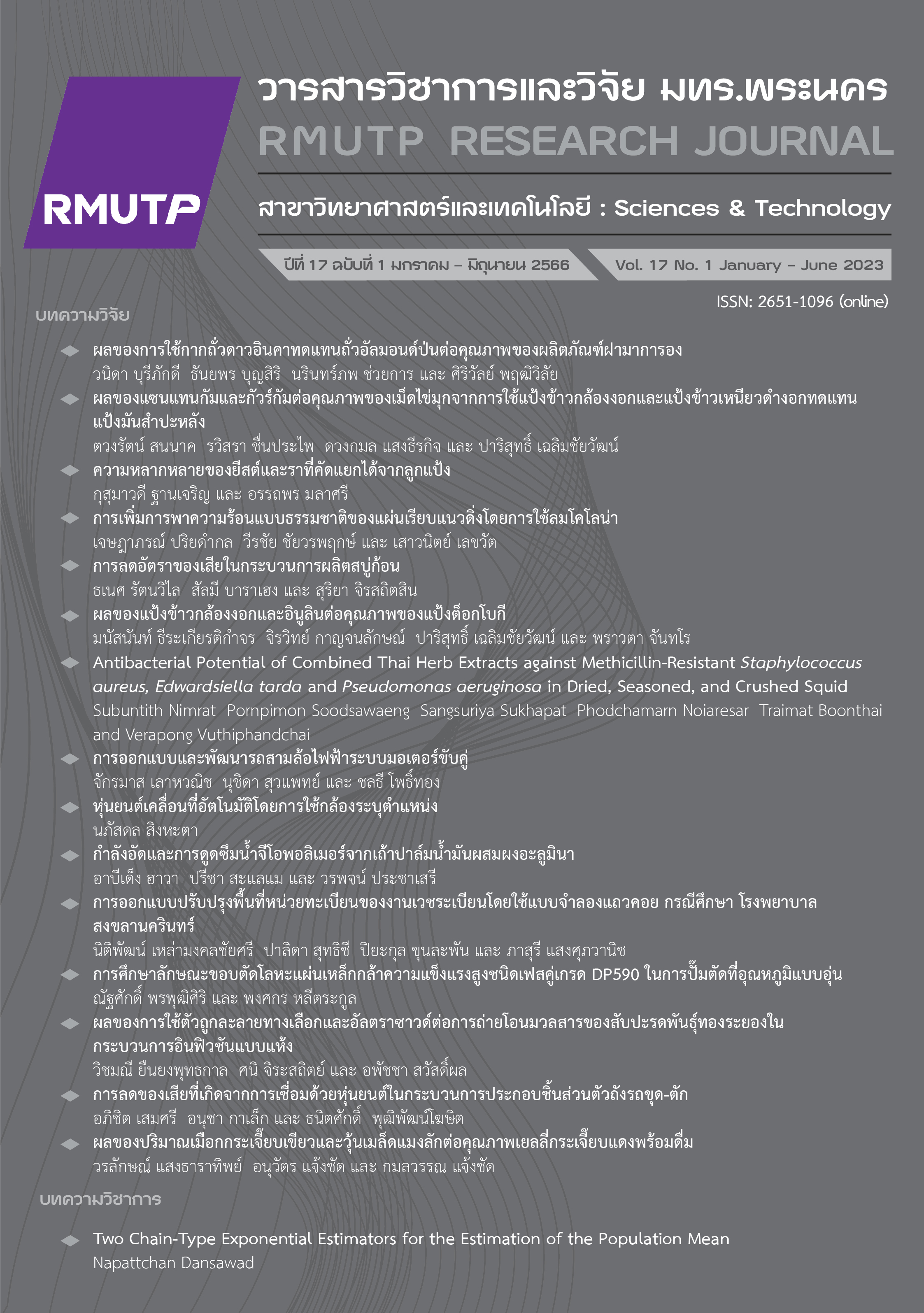Two Chain-Type Exponential Estimators for the Estimation of the Population Mean
Main Article Content
Abstract
This paper attempts to suggest two chain-type exponential estimators to estimate population mean when the information regarding auxiliary variable is complete. To the first-order approximation, the bias and the mean squared error (MSE) of the suggested estimators have been discussed. A few members were also derived from the suggested estimators by allocating the different suitable values of constants. In addition, theoretical and numerical studies were used in order to access the efficiency of the suggested estimators. The results of this study show that the suggested estimators are more efficient under bias and percent of relative efficiencies (PREs) criterion compared to other existing estimators.
Article Details

This work is licensed under a Creative Commons Attribution-NonCommercial-NoDerivatives 4.0 International License.
ลิขสิทธ์ ของมหาวิทยาลัยเทคโนโลยีราชมงคลพระนครReferences
H. P. Singh, R. S. Solanki and A. K. Singh, “A generalized ratio-cum-product estimator for estimating the finite population mean in survey sampling,” Communications in Statistics - Theory and Methods, vol. 45, no. 1, pp. 158-172, Jan. 2016.
S. Bahl and R. K. Tuteja, “Ratio and product type exponential estimators,” Journal of Information and Optimization Sciences, vol. 12, no. 1, pp. 159-164, May 1991.
M. Khoshnevisan, R. Singh, P. Chauhan, N. Sawan and F. Smarandache, “A general family of estimators for estimating population mean using known value of some population parameter(s),” Far East Journal of Theoretical Statistics, vol. 22, pp. 181-191, Jul. 2007.
H. P. Singh and N. Agnihotri, “A general procedure of estimating population mean using auxiliary information in sample surveys,” Statistics in Transition New Series, vol. 9, no. 1, pp. 71-87, Jun. 2008.
H. P. Singh and S. K. Pal, “A new chain ratio-ratio-type exponential estimator using auxiliary information in sample surveys,” International Journal of Mathematics And its Applications, vol. 3, no. 4-B, pp. 37-46, Sep. 2015.
H. P. Singh and R. Tailor, “Use of known correlation coefficient in estimating the finite population mean,” Statistics in Transition, vol. 6, no. 1, pp. 555-560, Jan. 2003.
B. V. S. Sisodia and V. K. Dwivedi, “A modified ratio estimator using coefficient of variation of auxiliary variable,” Journal Indian Society Agricultural Statistics, vol. 32, no. 2, pp. 13-18, Jan. 1981.
B. N. Pandey and V. Dubey, “Modified product estimator using coefficient of variation of auxiliary variate,” Assam Statistical Review, vol. 2, no. 2, pp. 64-66, Jan. 1988.
M. N. Murthy, Sampling Theory and Methods, 2nd ed. Calcutta: Statistical Publishing Society, 1967.
W. G. Cochran, Sampling Techniques, 3rd ed. New York: John Wiley & Sons, 1977.


